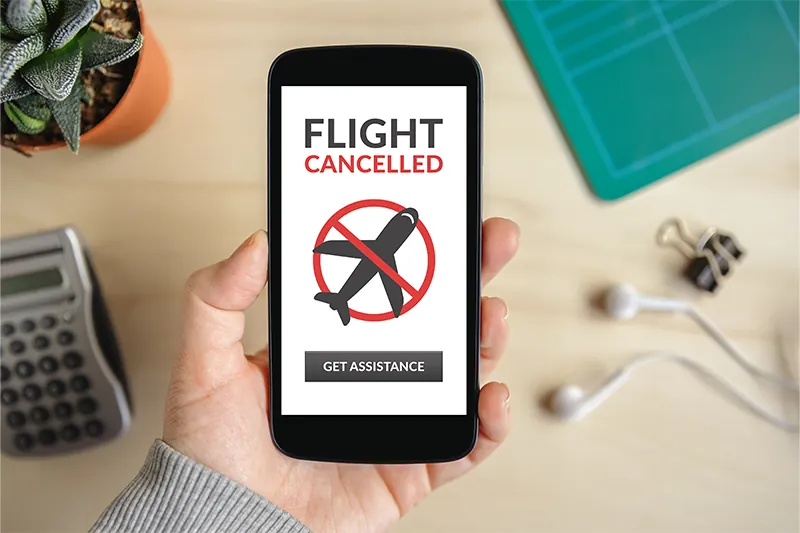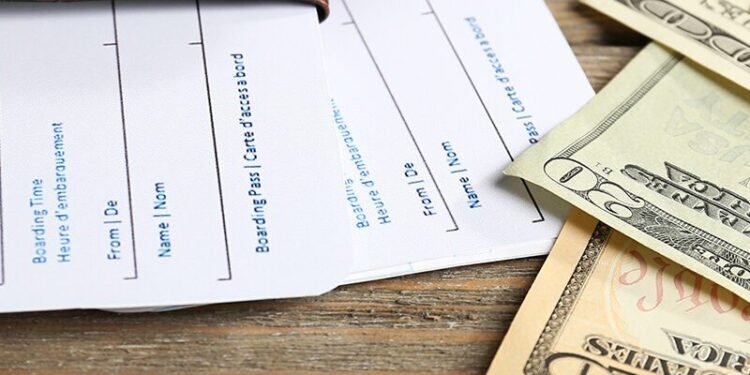Airline delays and cancelations are frustrating enough, but having to spend time fighting with the airline to get compensation or getting stuck with an airline voucher you’ll never use makes the situation even worse. Fortunately, that’s all about to change—the U.S. Department of Transportation (DOT) just announced a new policy that requires airlines to automatically issue cash refunds to passengers when flights are canceled or significantly delayed.
Under the new federal rules, airlines must promptly provide full refunds, paid out in cash or the original form of payment, whenever a domestic flight is delayed by more than three hours or an international flight is delayed by more than six hours. Refunds must also be given for any baggage fees if luggage arrives over 12 hours late, as well as for services like WiFi or premium seating if those amenities are paid for but not actually provided.
The refunds, which must be issued within seven days for credit card purchases and 20 days by other payment methods, cannot be substituted with travel vouchers or credits against the passenger’s wishes. This policy closes a loophole that previously allowed airlines to force such alternatives in lieu of actual cash refunds.
In addition, the DOT now requires airlines to disclose fees upfront what fees will be charged for checked bags, a carry-on bag, and for changing/canceling a reservation. “The rule will help consumers avoid unneeded or unexpected charges that can increase quickly and add significant cost to what may, at first, look like a cheap ticket,” the DOT said in a statement. In the future, flyers will see these fees disclosed the first time the fare and schedule information is displayed on an airline’s website (and not through a link or at the end when they go to purchase the ticket).

“Passengers deserve to know upfront what costs they are facing and should get their money back when an airline owes them—without having to ask,” said U.S. Transportation Secretary Pete Buttigieg. “Today’s announcements will require airlines to both provide passengers better information about costs before ticket purchase, and promptly provide cash refunds to passengers when they are owed—not only saving passengers time and money but also preventing headaches.”
Finally, the last part of the new rule will require that airlines provide travel credits or vouchers to passengers who are “restricted by a government or advised by a medical professional not to travel to, from, or within the United States due to a serious communicable disease.” Although flyers will likely be required to provide proof of their illness, this is good news for anyone who has ever fallen sick before a flight.
The new rules will take effect over the next six to 12 months. In the meantime, the DOT is also considering working to create policies that would forbid airlines from charging for parents to sit with their children, to make passenger compensation and amenities mandatory during delays or cancelations, and to expand rights to allow flyers who use wheelchairs to travel safely and with dignity.
You Might Also Like:
• The Airlines With the Most and Least Amount of Legroom
• Why Didn’t I Get TSA PreCheck on My Boarding Pass if I’m a PreCheck Member?
• United Airlines Is Changing Its Boarding Process
• This Airline Is Renting Clothing to Passengers Who Want to Travel Light
• 6 Things You Should Never Do When Crossing a Border
We hand-pick everything we recommend and select items through testing and reviews. Some products are sent to us free of charge with no incentive to offer a favorable review. We offer our unbiased opinions and do not accept compensation to review products. All items are in stock and prices are accurate at the time of publication. If you buy something through our links, we may earn a commission.
















































